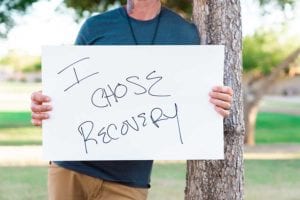Purpose:
We exist to provide hope, transformation and connection for life!
Mission:
We provide attainable, affordable and accessible mental health and substance use treatment with evidence-based clinical integrity.
Vision:
We will be the trusted Center of Excellence for mental health and substance use disorders in our communities. By example, we will inspire our communities to accept and empower individuals through healing. Through healing individuals, communities will heal.
Values:
We Promise to be…
COMPASSIONATE – Our patients and families are our FIRST priority. We will be supportive and caring as we guide them through their recovery journey.
HONEST – We will keep our promises.
ETHICAL – We will be transparent and accountable for our actions.
INNOVATIVE – We will be courageous and creative in designing new ways to serve patients, communities, referrals, and staff.
AUTHENTIC – Our actions will reflect our genuine passion to serve others.
RESPONSIBLE – We will create valuable results in outcomes for our patients and stakeholders.
Standards of Care
 Neurobiological Focus
Neurobiological Focus
We understand the complex ways in which addiction and trauma change the brain. Treatment is informed by the latest scientific research, and we implement interventions that heal the brain, target triggers and cravings, and develop new neural pathways.
Addiction Containment
We use a combination of physical, social, contractual, and biological measures to support recovery while exploring patient acceptance and resistance to containment. We believe that containment in the early stages of recovery is critical, while individuals gain the tools and skills necessary to manage triggers and cravings.
Medication-Assisted Treatment
We understand that individuals need support to manage cravings and prevent relapse while the brain is healing, and normal emotional and decision-making capabilities are being restored. We individualize MAT based on the medical and clinical assessment of needs.
Recovery Skills and Support Groups
Treatment includes core components of basic recovery: 12-step work, meditation skills, and building a daily self-reflection process. We encourage support group participation, which has proven successful in enhancing self-efficacy, improving motivation, and building healthy social networks.
Building Emotional Awareness and Resilience
Using evidence-based approaches, such as DBT and CBT, we teach individuals to identify emotional states in themselves and others, while learning and practicing emotional resilience techniques and coping skills.
Changing the Internal Narrative
We help individuals to correct destructive self-talk and negative self-concept. We are deepening the individual’s understanding of their defense mechanisms that lead to maladaptive interpersonal styles and putting them at risk of relapse. We also address shame, resiliency, courage, and vulnerability.
Connectedness and Spirituality
Individuals learn meaningful connections and healthy interdependence with others. We help individuals build a personal spiritual framework while fostering post-traumatic growth through meta-spiritual concepts such as meaning-making, purpose, and forgiveness.
Systemic Approach
We understand that addiction and mental health issues affect everyone close to the individual and that comprehensive treatment must include healing in those primary relationships. We offer family education, conjoint therapy, and multi-family groups. We also involve key stakeholders in relapse prevention plans.
Relapse Prevention
We help individuals develop a deeper understanding of triggers and cravings, equipping them with concrete skills and strategies. Individuals learn the basic components of relapse prevention and construct a relapse prevention plan that is specific to their needs.
Trauma-Informed Care
Due to the complex overlap of trauma, mental illness, and addiction; comprehensive treatment seamlessly addresses all three issues. We maintain the stance that all treatment should include “universal precautions” of trauma through the implementation of trauma-informed care
Creating Extraordinary Lives

Promises Behavioral Health fills the gaps in treatment by creating unique programs in unique environments. We partner with clients, their family members and other treatment providers to understand which needs aren’t being adequately addressed, and then develop programs that are carefully designed to meet those needs. Come learn more about Promises Behavioral Health.
Our centers are committed to providing the highest quality clinical care for addiction and mental health disorders. Utilizing the latest evidence-based approaches and specialized programming tailored to our clients’ needs, we help people build the resilience and skills they need to heal. Our focus is on long-term, sustainable recovery and overall improvement in quality of life.
About Promises Behavioral Health
To learn more about Promises Behavioral Health in Nashville, TN, mental health disorders, and your treatment options, read more below.
Roughly one out of every five adult Americans struggles with a mental health issue each year, with as many as 10% of Americans under the age of 18 dealing with mental health symptoms. Mental health disorders are one of the most common health problems in the country. Even though a large number of people experience mental health issues annually, less than half seek treatment.
Many people who receive mental health treatment deal with unmet needs, such as long waits for appointments or transportation issues. Changes to medical insurance laws require medical insurance providers to cover mental health and substance abuse disorders in the same manner that they cover medical conditions. These changes have made mental health treatment more accessible and affordable.
Mental Health Disorders
Tens of millions of Americans battle mental health disorders and symptoms each and every year. Some of the most common mental health disorders include:
- Depression and major depressive disorder
- Generalized anxiety disorder and panic attack disorder
- Mood disorders, such as bipolar disorder
- Eating disorders, such as anorexia and bulimia nervosa
- Trauma-related disorders, such as Post Traumatic Stress Disorder
- Obsessive-compulsive disorder
The exact cause of mental health disorders is unknown, although there is a correlation between having a family history of mental health problems and developing a mental health disorder. Working in professions that are dangerous or violent can increase your risk of developing a trauma-related disorder. First responders, police officers, and military personnel are more likely to witness tragic or violent acts and are therefore more likely to develop conditions such as PTSD.
Mental health disorders can create disabling symptoms and intense emotions that don’t improve with time. For example, if you struggle with depression, you can feel overwhelmingly sad for weeks. Symptoms will continue to get worse until you begin treatment. Conditions such as anxiety may make it hard to contact a treatment center such as those offered by Promises Behavioral Health in Nashville, TN. Mental health conditions can also increase your isolation, which serves as a significant barrier to treatment. Medications and therapy are utilized to help limit and alleviate your symptoms.
Treating Mental Health Disorders
Mental health disorders are treated with a combination of medications, evidence-based treatments, and holistic therapies. One of the best things about Promises Behavioral Health is that we offer the most effective treatments available, such as:
- Cognitive and dialectic behavioral health
- Meditation and mindfulness exercises
- Medication management
- Individual counseling
- Coping strategy education
Mental health symptoms can worsen when you are exposed to triggers. Triggers can be people, places, or things that cause your symptoms to intensify. Some examples of triggers include:
- Stress
- Major life changes
- Traumatic events
- Starting a new job
- Moving
- Conflict with friends or family
- Financial problems
Cognitive and behavioral therapy strives to help you identify and change negative thinking patterns, emotions, and behaviors. Learning how to identify these things allows you to learn how to better cope with triggers.
Coping strategies can also provide relief from symptoms. For example, exercising can offer a great way to calm down if you are experiencing restlessness, high energy, or anxiety. Therapy also helps improve your communication skills, making it easier to explain your thoughts, feelings, and reasoning.
About Promises Behavioral Health
When you suffer from a mental health disorder or symptoms, finding help is the first step toward recovery. Early treatment greatly improves your ability to manage your symptoms successfully, so you can live your best life. Since symptoms can negatively affect your relationships, career, and ability to cope with stress, treatment helps you learn the skills necessary to control your symptoms.
To learn more about Promises Behavioral Health, contact us today at 844.875.5609.
Events
Throughout the year Promises Behavioral Health, Promises Treatment Centers, The Ranch, and The Sexual Recovery Institute participate in conferences, develop continuing education workshops to benefit the professional community, and offer recovery retreats.


 Neurobiological Focus
Neurobiological Focus